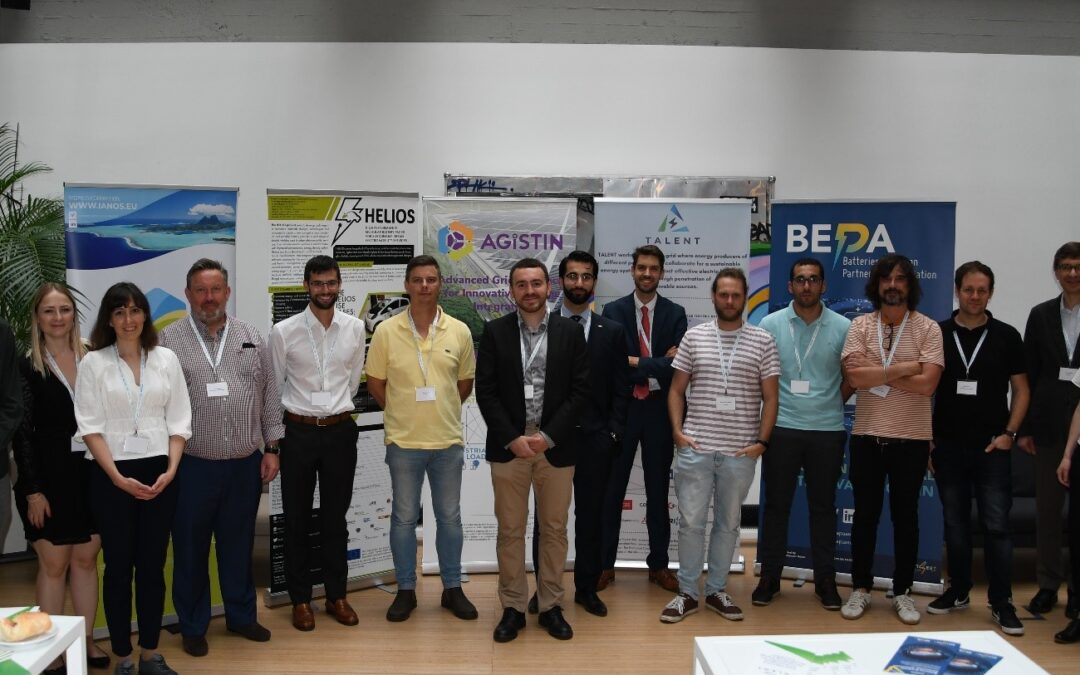The TALENT project will end its activity on 31 July 2023 after 46 months since its inception. To close this cycle, the project consortium, which had the objective of promoting the integration of electrical storage in the grid through batteries, reducing cost and improving efficiency, in order to favour the flexibility of the energy system, met in Brussels for a final event in which the results of the project were presented, showing that the necessary developments to integrate batteries at 800 V and 1500 V have been successfully validated, and the more ambitious case of 3000 V is being closed, not without difficulties.
To this end, new technologies has been development to integrate these batteries into the electricity grid in different voltage levels. These technologies are based on scalable and modular electronic architectures. In addition, a SaaS service (Software as a Service) capable of managing energy resources (generation and demand) has been successfully validated in La Plana experimental centre, belonging to Siemens Gamesa. For this purpose, the team has carried out control and management test on generation, storage and demand of photovoltaic and wind power generation, which have been controlled locally and remotely level, cloud-based, through the architecture developed at TALENT.
The consortium is composed of six companies, three technologies centres, an association and a university, and the project is funded by the European Commision’s H2020 programme. The last follow-up meeting has celebrated on 21 June, where the members presented the results achieved by the partners. The final event has held the following day, open to the public, which could be followed in a hybrid format (online and face-to-face). Six external projects participated in three sessions:
- A panel discussion of TALENT results, moderated by Lorenzo Dall’Oro (RINA), during which all attendees were able to learn first-hand about the most relevant results of the project.
- A roundtable on the integration of batteries into the electricity grid of facilitate the provision of flexibility to grid operators, moderated by Wouter Ijzermans (BEPA Association). The invited projects were HELIOS, LOLABAT, AGISTIN.
- A roundtable on the management and control of decentralised and hybrid energy systems, moderated by Darja Skrt Georgiev (CyberGrid). In this case, the invited porjects were ENFLATE, TIGON, IANOS.
Moreover, Lorenzo Dall’Oro (RINA) presented the strategy for the exploitation of TALENT results. The industrial members have concrete of bring commercial products to the market based on the development of the TALENT work.
